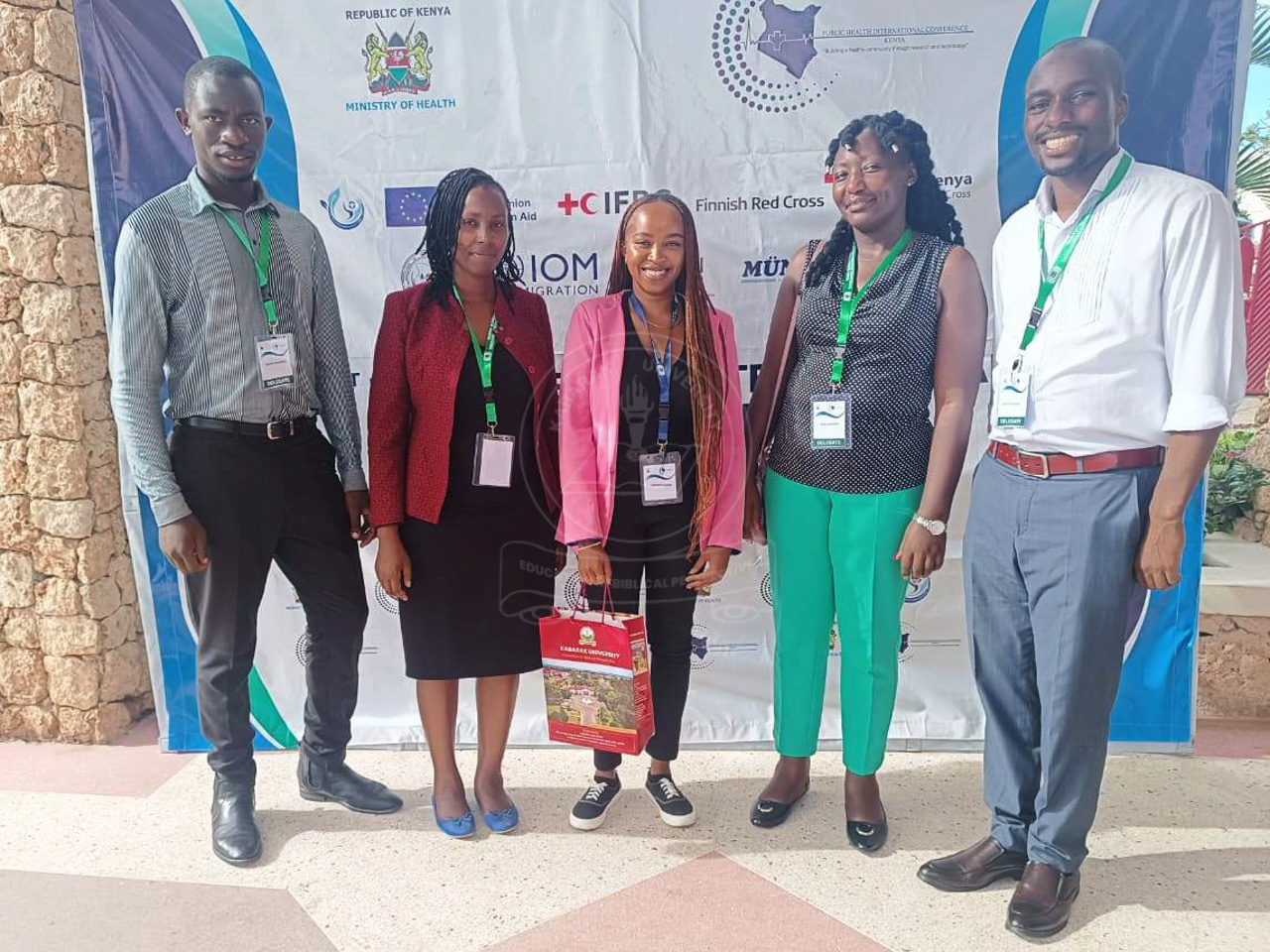The field of public health is of the utmost importance in today's society, where health concerns have become increasingly complex and intertwined with environmental issues. In an effort to address these challenges and explore innovative solutions, the first Public Health International Conference was held from April 2nd to 5th, 2023 at the PrideInn Paradise Convention Centre in Mombasa County, Kenya. The conference attracted a diverse group of attendees from 21 counties, including representatives from the Ministry of Health, regulatory bodies in the public health sector, and seven learning institutions.
Kabarak University, a participating learning institution, was well-represented at the conference by its faculty and students from the Department of Public Health. They actively participated in the presentations and discussions around the conference theme "Sustainable Public Health Approaches to Health and Environment in the 21st Century". They highlighted the urgent need for sustainable public health approaches that address health issues while safeguarding the environment in the 21st century.
The conference was launched by the Governor of Mombasa County on Tuesday, April 4th, 2023. The event provided an opportunity for participants to learn from each other, share best practices, and build new collaborations that could lead to innovative solutions to public health challenges. Participants exchanged ideas, research findings, and experiences while discussing the role of technology and other innovations in enhancing public health outcomes.
Kabarak University and Kabarak University TVET Institute were proud participants at the conference, where they showcased their invaluable contributions to public health. They passionately encouraged Mombasa County residents to visit their tents and discover more about the Great Kabarak University. Attendees learned about the university's exceptional public health programs, as well as other programs on offer.
Furthermore, the conference marked a significant milestone for Kabarak University as they witnessed the launch of the training needs assessment report for public health officers. This report delves into the current and future training and practice needs of public health officers and technicians in Kenya for the next 10 20 years. It is a crucial exploration that will shape the future of public health in Kenya.
Overall, the conference was a resounding success, bringing together experts and stakeholders from various fields to address the pressing issues facing public health in the 21st century. The discussions and collaborations that took place at the conference will undoubtedly lead to the development of sustainable solutions that benefit communities around the world.







